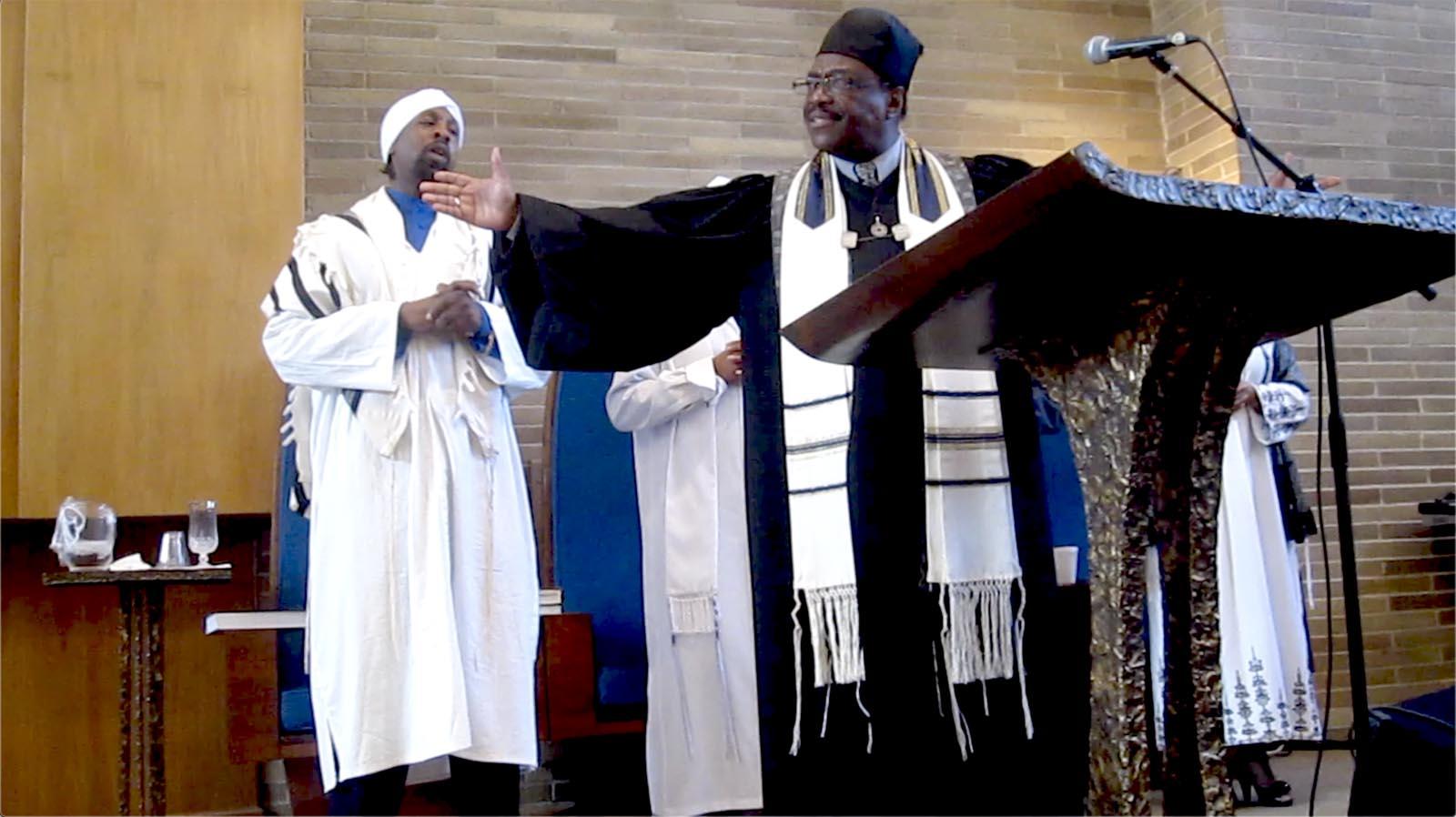[vc_row][vc_column][rev_slider_vc alias=”article-header-banner”]
[vc_column_text “post-meta-data”][+AUTHOR+][+PUBLICATION+][+DATE+]
A week ago, before the latest act of apparent domestic terrorism claimed four innocent lives at a New Jersey kosher market, it’s a good bet most Americans had little idea what a Black Hebrew Israelite was.
A week later, they probably still don’t know, despite widespread media reports identifying one of the two alleged perpetrators, both of whom were also killed, as formerly being a Black Hebrew Israelite.
I have been long familiar with the group — or better, the many, vastly different groups the moniker might describe. My awareness comes from decades of reporting on people of color who embrace religious practices tangentially or directly related to Judaism, as well as a more personal interest being born into an African American and Ashkenazi Jewish family.
Worldwide, there are Jews of every color. In the U.S., there are black adherents, formally affiliated or not, in all the “mainstream” Jewish denominations: Reform, Conservative, Orthodox, Reconstructionist, Renewal. Then there are African Americans who embrace aspects of the religion but may not have formally converted, whose roots go back to the late 19th century. Their adoption of Judaic practices came with the same logic as those who embraced Islam — that “we could not possibly be the religion of the slaveholders.”
Some use the term Hebrew Israelite, some use (or are called by others) Black Hebrews, some a combination of terms. The word “Ethiopian” may appear in their official titles, though they are not to be confused with that country’s Beta Israel community that traces its Judaism back to Solomon and antiquity.
Practices vary greatly. At least one group I know of prefers Hassidic dress and tzitzit but still deifies Jesus. There are those for whom worship is extremely insular (a Boston group with whom I spoke on the phone several times simply would not open the door for me for services) and those, to the chagrin of passersby, who simply cannot shut up. Count among them characters bedecked in turbans proselytizing — or verbally assaulting — anyone who makes the unfortunate decision to engage them in places like Times Square. Or more recently, the Lincoln Memorial in a now-infamous confrontation with Covington Catholic High School students from Kentucky.
While they may share similar roots, their practices and public persona are night and day from worshippers such as those belonging to Chicago’s Beth Shalom B’nai Zaken Ethiopian Hebrew Congregation, led by my friend, Rabbi Capers Funnye. The chief of the International Israelite Board of Rabbis, Inc., Funnye is highly regarded as bridge-builder throughout Jewish communities, having served on the Chicago Board of Rabbis and the Jewish Council on Urban Affairs. In a response to what obviously has been a painful event, Funnye said: “We are gripped by sadness in our community by the heinous actions of two disturbed individuals who cloaked themselves in anti-Semitism and hate-filled rhetoric that has risen in our country from other fringe groups, be they on the right or left, Black or White.”
Their actions might well be traced to an organized doctrine of hatred toward Jews of European ancestry. I emphasize might, however. No one can get inside another’s mind to know their true motivation, and at least one report suggests the Black Hebrew Israelite connection may not be true after all. Numerous reports also say the alleged gunman was “formerly” affiliated with the group. Does that mean we should respond to a lapsed Catholic gone rogue by condemning Catechism classes?
Although halachic Judaism has clear requirements for how one properly converts to Judaism, and many, if not most, Israelite or Hebrew adherents have not done so, it’s not so easy to dismiss them as “not real Jews.” Who is a Jew has long been a difficult, if not impossible question, and the debate rages even among mainstream denominations, perhaps most vividly in the state-sanctioned Orthodox rabbinate of Israel that holds Reform and Conservative conversions as invalid. Yet while their determinations may have legal ramifications in Israel, such distinctions may matter little to the wider public that may have its own ideas of who is a Jew.
An apt analogy is the relationship between the Church of Jesus Christ of Latter-Day Saints, which is the mainstream Mormon Church, and the Fundamentalist Church of Jesus Christ of Latter-Day Saints, which is a body that still practices polygamy. While mainstream LDS members would clearly distance FLDS adherents as not true Mormons, the outside world would struggle to define them as anything else.
Another grim reality is that regardless of how any of us sees ourselves, our identity may still be defined by others or even an oppressor. The Nuremberg Laws defined Jews as persons with at least one Jewish grandparent, which is not what Halacha says. There is little doubt how an SS commander would view someone called a Black Hebrew Israelite.
So is it possible that a Judaic-influenced group could have evolved into something anti-Semitic? Yes, though by no means does that excuse their horrific acts, or relegate hatefulness into an internecine Jewish struggle. But it could bring a deeper understanding of how they got to be, who they are and who they are not, necessary for defusing their disorders before they emerge again.
What’s most important now is refraining from casual or sweeping generalizations, whether with the terms Hebrew or Israelite, or for that matter, black, Jewish, Muslim, Christian, Buddhist or any other human condition or belief system. No creed can justify murder, and no one should be wrongly associated with any that does.






